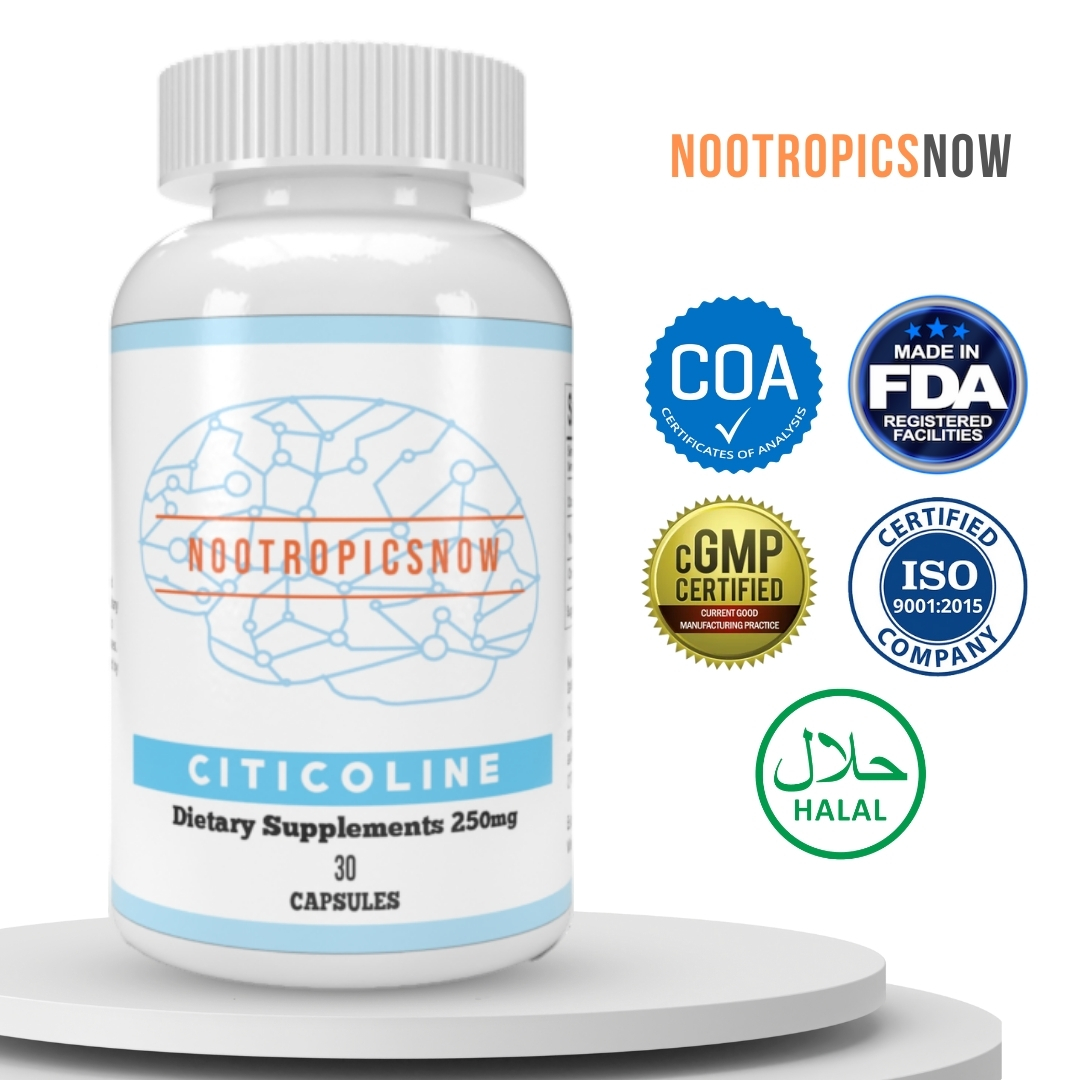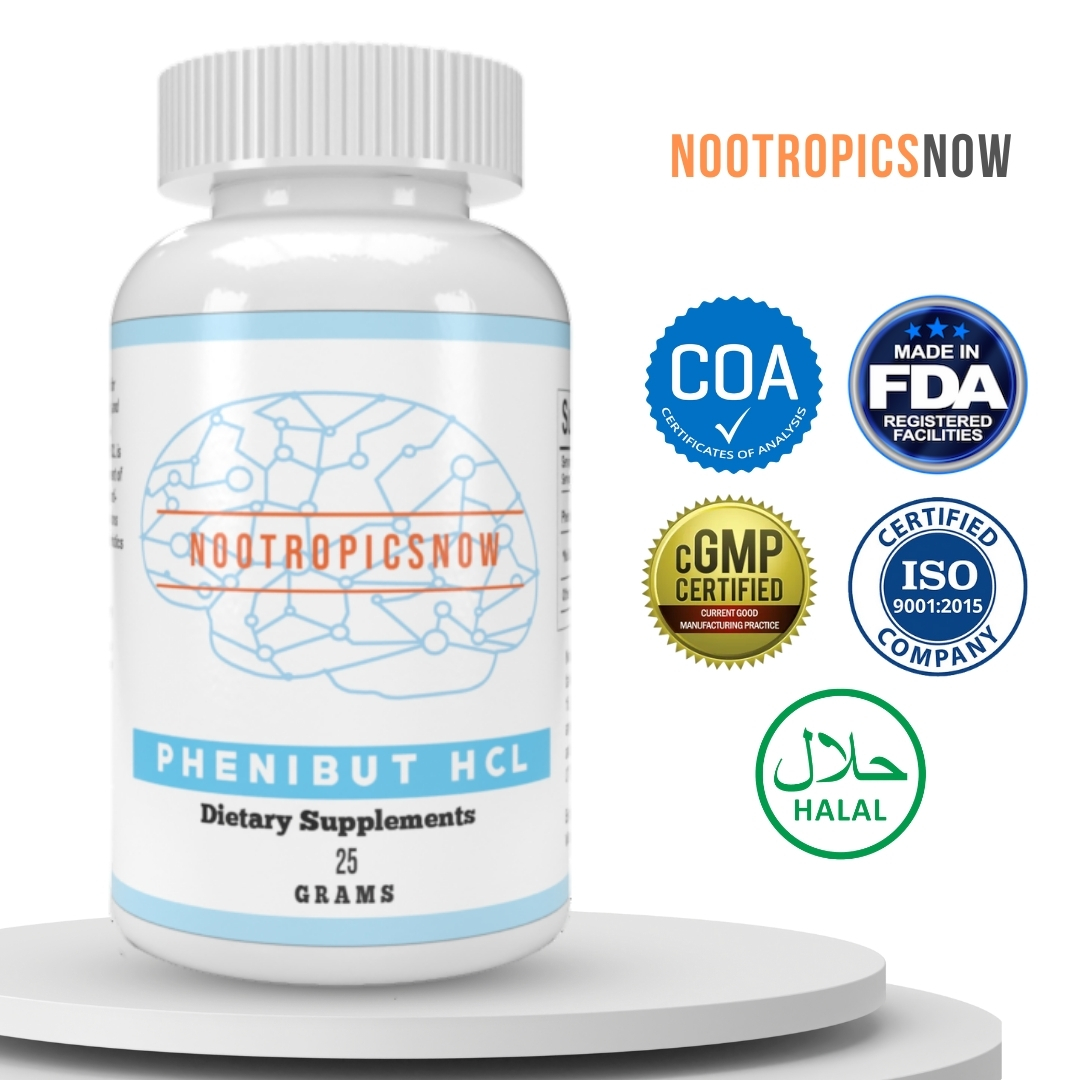Nootropics for Exams: Boost Your Brain

Nootropics for Exams: A Comprehensive Guide to Boosting Brainpower
Facing upcoming exams? Feeling overwhelmed and mentally drained? Nootropics might offer the cognitive edge you need. These substances, also known as smart drugs or cognitive enhancers, are designed to improve brain function, focus, memory, and overall mental performance. As the academic pressure mounts, more and more students are turning to nootropics to enhance their study sessions and exam performance. However, navigating the world of nootropics can be complex. This comprehensive guide will explore the best nootropics for exams, their benefits, potential risks, and how to use them effectively.
Understanding the Cognitive Demands of Exams
Exams place significant cognitive demands on students. Efficient learning, effective memory consolidation, sustained attention, and the ability to recall information under pressure are all crucial for success. Additionally, managing stress and anxiety is equally important, as these factors can significantly impair cognitive function. Here’s a breakdown of the key cognitive skills required for exams:
Nootropics can potentially support each of these cognitive areas, providing a multifaceted approach to exam preparation.
Top Nootropics for Exam Preparation
Several nootropics have shown promise in enhancing cognitive function and improving exam performance. Each nootropic works differently, so understanding their mechanisms of action and potential benefits is crucial for selecting the right ones.
1. Caffeine and L-Theanine: The Synergy of Focus and Calm
Caffeine is a widely used stimulant known for its ability to increase alertness and focus. However, it can also cause anxiety, jitters, and crashes. L-Theanine, an amino acid found in green tea, promotes relaxation and reduces anxiety without causing drowsiness.
Benefits for Exams:
Dosage: A typical combination is 100-200mg of L-Theanine with 50-100mg of caffeine.
Mechanism of Action: Caffeine blocks adenosine receptors, promoting wakefulness and alertness. L-Theanine increases alpha brain waves, promoting relaxation and reducing anxiety. Together, they create a synergistic effect that enhances focus and calmness.
Optimizing Your Nootropic Stack for Exams: A Strategic Approach
Choosing the right nootropics for exam preparation involves understanding their specific effects and potential synergies. This section provides a strategic guide to selecting and combining nootropics to maximize cognitive performance during crucial study periods and exams.
Understanding Individual Cognitive Needs
Before diving into specific nootropics, it’s crucial to identify individual cognitive needs and weaknesses. This self-assessment helps in tailoring a nootropic stack that addresses personal challenges in areas such as memory recall, focus, stress management, or mental fatigue.
Memory Recall
For individuals struggling with memory recall, nootropics like CDP-Choline and Bacopa Monnieri can be particularly effective. CDP-Choline increases levels of acetylcholine, a neurotransmitter crucial for memory formation and retrieval. Bacopa Monnieri, an adaptogenic herb, has been shown to enhance memory and cognitive function over time. Therefore, consider supplements such as CDP Choline for cognitive support.

View Product
Focus and Concentration
For those challenged by maintaining focus and concentration, L-Theanine and caffeine can be beneficial. L-Theanine, an amino acid found in green tea, promotes relaxation without drowsiness, allowing for sustained attention. When combined with caffeine, it provides a synergistic effect, enhancing focus and reducing jitteriness.
Stress Management
Stress can significantly impair cognitive function during exams. Adaptogens like Rhodiola Rosea and Ashwagandha can help manage stress levels and improve mental resilience. Rhodiola Rosea reduces mental fatigue and enhances cognitive performance, while Ashwagandha helps lower cortisol levels, the hormone associated with stress. Consider Rhodiola Rosea for improving mood, motivation, and cognitive function.

View Product
Mental Fatigue
Mental fatigue can be a major obstacle during long study sessions and exams. Nootropics such as Panax Ginseng and Creatine can help combat fatigue and boost mental energy. Panax Ginseng enhances mental performance and reduces feelings of tiredness, while Creatine improves brain energy metabolism.
Building Your Nootropic Stack
Once you’ve identified your cognitive needs, the next step is to build a nootropic stack that addresses those specific areas. It is generally recommended to start with a simple stack consisting of a few well-researched nootropics and gradually adding others as needed.
Foundational Nootropics
Begin with a foundation of essential nootropics that provide broad cognitive benefits. Examples of foundational nootropics include:
Targeting Specific Cognitive Needs
After establishing a solid foundation, add nootropics that target your specific cognitive needs. For instance, if you struggle with memory recall, incorporate Bacopa Monnieri into your stack. If stress is a major concern, add Rhodiola Rosea or Ashwagandha.
Recommended Nootropic Stacks for Exams
Here are a few recommended nootropic stacks tailored for different cognitive needs during exam preparation:
Memory and Focus Stack
Stress and Resilience Stack
Mental Energy and Focus Stack
Optimizing Dosage and Timing
To maximize the benefits of your nootropic stack, it’s crucial to optimize the dosage and timing of each component. Start with the recommended dosages and adjust as needed based on your individual response.
Dosage
Begin with the lowest effective dose and gradually increase until you achieve the desired effects. Avoid exceeding the recommended dosages, as this can increase the risk of side effects.
Timing
Consider the timing of each nootropic based on its effects. For instance, take nootropics that promote focus and energy in the morning or early afternoon to avoid disrupting sleep. Take nootropics that promote relaxation and stress reduction in the evening.
Potential Synergies
Stacking certain nootropics can create synergistic effects, meaning that the combined effects are greater than the sum of their individual effects. Here are a few examples of potential nootropic synergies:
By carefully selecting and combining nootropics, you can create a powerful stack that enhances cognitive performance and helps you excel during exam preparation.
Integrating Nootropics into a Holistic Study Plan
While nootropics can be a valuable tool for enhancing cognitive function, they are not a substitute for a comprehensive study plan that includes healthy lifestyle habits. This section outlines how to integrate nootropics into a holistic study plan that promotes overall cognitive health and exam success.
Prioritizing Sleep
Adequate sleep is essential for cognitive function and memory consolidation. Aim for at least 7-8 hours of quality sleep each night. Avoid using nootropics that can disrupt sleep, such as caffeine, close to bedtime.
If you struggle with sleep, consider incorporating natural sleep aids into your routine, such as melatonin or magnesium. For anxiety and stress relief, consider the Phenibut HCL Powder for relaxing and calming.

View Product
Optimizing Nutrition
A balanced diet rich in fruits, vegetables, and whole grains provides the nutrients your brain needs to function optimally. Avoid processed foods, sugary drinks, and excessive amounts of caffeine.
Include foods that are rich in antioxidants, such as berries, leafy greens, and nuts, to protect your brain from damage. Also, ensure you’re consuming enough healthy fats, such as omega-3 fatty acids, which are essential for brain health.
Regular Exercise
Regular physical activity improves blood flow to the brain and promotes the release of endorphins, which have mood-boosting effects. Aim for at least 30 minutes of moderate-intensity exercise most days of the week.
Find an activity you enjoy, such as running, swimming, or cycling, and make it a regular part of your routine. Even a short walk can have a positive impact on your cognitive function.
Effective Study Techniques
Nootropics can enhance cognitive function, but they won’t replace the need for effective study techniques. Use active learning strategies, such as summarizing information, teaching concepts to others, and practicing with past exams.
Break down your study sessions into smaller, manageable chunks and take regular breaks to avoid mental fatigue. Create a study environment that is free from distractions and conducive to learning.
Stress Management Techniques
Exam preparation can be a stressful time. Incorporate stress management techniques into your routine, such as meditation, yoga, or deep breathing exercises.
Take time for activities that you enjoy, such as spending time with friends and family, reading, or listening to music. Remember to prioritize self-care and avoid overworking yourself.
Creating a Balanced Schedule
Balancing study time with other aspects of your life is essential for maintaining overall well-being. Schedule time for social activities, hobbies, and relaxation.
Avoid isolating yourself and make sure to connect with friends and family regularly. Remember that taking breaks and engaging in enjoyable activities can actually improve your cognitive function and make you more productive.
By integrating nootropics into a holistic study plan that includes healthy lifestyle habits and effective study techniques, you can maximize your cognitive potential and achieve success in your exams.
Addressing Potential Risks and Side Effects of Nootropics
While nootropics can offer cognitive benefits, it’s essential to be aware of potential risks and side effects. This section discusses the potential downsides of nootropics and provides guidelines for minimizing risks.
Common Side Effects
Like any substance, nootropics can cause side effects in some individuals. Common side effects include:
If you experience any side effects, reduce your dosage or discontinue use. Consult with a healthcare professional if side effects persist or become severe.
Potential Drug Interactions
Nootropics can interact with other medications, potentially leading to adverse effects. Consult with a healthcare professional before using nootropics if you are taking any prescription or over-the-counter medications.
Be particularly cautious when combining nootropics with medications that affect the central nervous system, such as antidepressants, anti-anxiety drugs, and stimulants.
Risk of Dependence and Tolerance
Some nootropics, such as modafinil, can be habit-forming and lead to dependence. Use these substances sparingly and avoid using them on a daily basis.
Tolerance can also develop with regular use of some nootropics, meaning that you need to take higher doses to achieve the same effects. Avoid increasing your dosage beyond the recommended limits, as this can increase the risk of side effects.
Long-Term Safety Concerns
The long-term safety of some nootropics is not well-established. Exercise caution when using nootropics for extended periods, and consult with a healthcare professional to monitor your health.
Be particularly cautious with synthetic nootropics, as their long-term effects are often unknown. Opt for well-researched natural nootropics whenever possible.
Quality Control Issues
The quality and purity of nootropics can vary widely depending on the manufacturer and supplier. Purchase nootropics from reputable sources that conduct third-party testing to ensure quality and purity.
Avoid purchasing nootropics from unverified online vendors, as these products may contain contaminants or be mislabeled.
Legal Considerations
The legality of nootropics varies depending on the country and substance. Research the legal status of nootropics in your region before using them.
Be aware that some nootropics may be classified as controlled substances, requiring a prescription for legal use.
Ethical Considerations
Using nootropics to gain a competitive advantage in exams raises ethical considerations. Consider whether the use of nootropics is fair to other students and whether it aligns with your personal values.
Be honest with yourself and others about your use of nootropics. Avoid using them to cheat or gain an unfair advantage.
By being aware of the potential risks and side effects of nootropics and following these guidelines, you can minimize risks and use them safely and responsibly. Always consult with a healthcare professional before using nootropics, especially if you have any underlying health conditions or are taking other medications.

